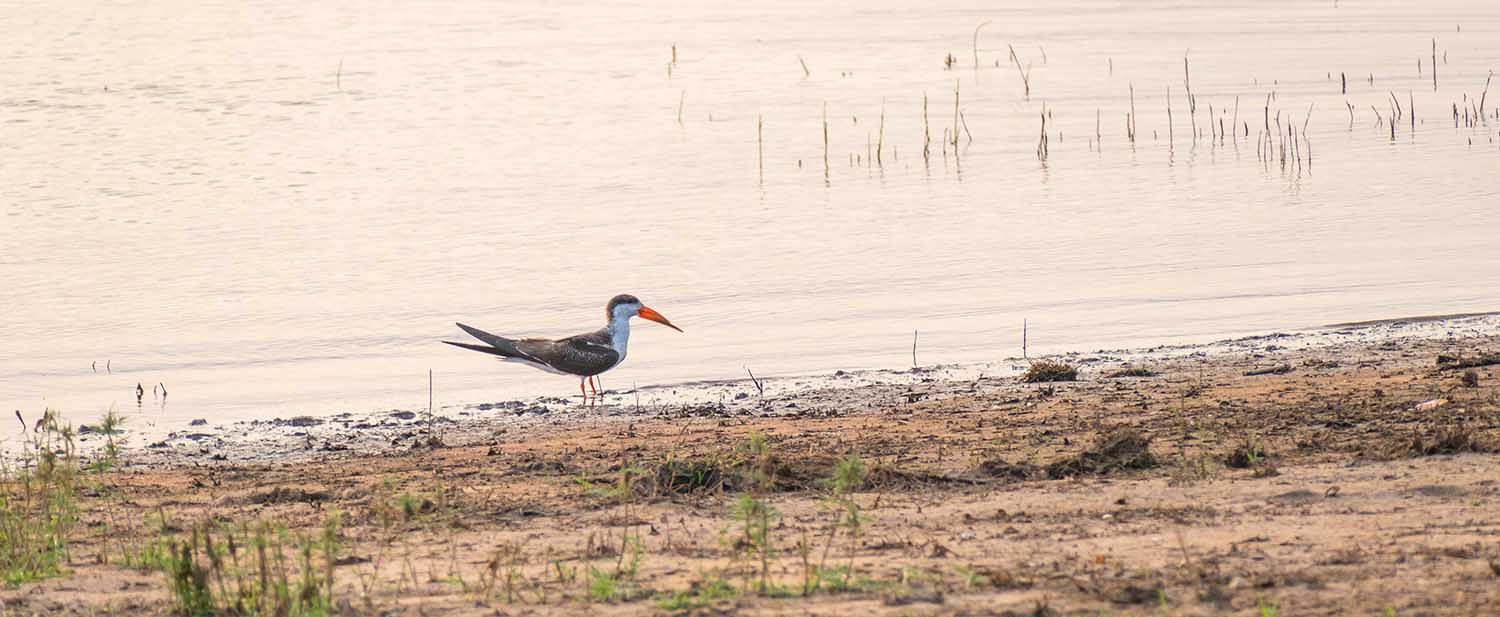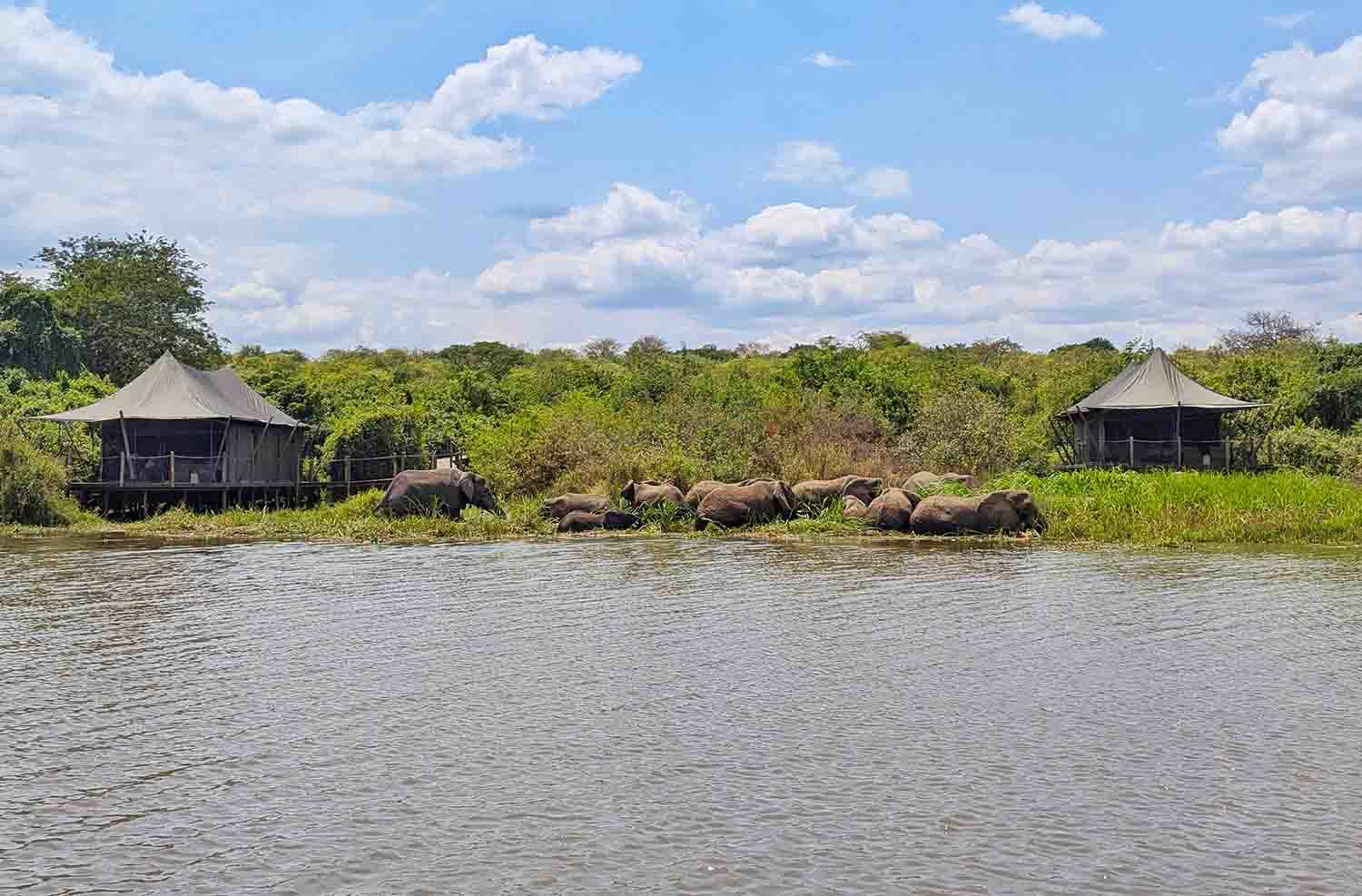The month of the African skimmer
Reaching the end of a long dry season – which in the tropics is not that long at all, to be honest – quite ironically means, that the lake levels are returning to normal, after the inundation and high water at the beginning of the dry season. The swamp and lake system of Akagera is basically a huge reservoir, soaking up and storing all the excess water from previous rainy seasons. By the time the last water arrives, we are usually already in the dry season but the lake and swamp water levels are still increasing. A couple of months later, by the end of the dry season, the water levels have then returned to their normal state.
And when this time comes, we have a very special annual visitor: the African skimmer. These intra-African migratory birds move around by following the rise and fall of water levels all over sub-Saharan Africa, and they nest in colonies on big tropical lake and rivers. African skimmers are highly specialised feeders and have an extremely unique bill structure, with the top mandible shorter than the bottom one. This enables them to perform a technique known as `skimming’, where they fly in lines over calm waters, and dip their lower mandible in the water. When the mandible touches a fish, the skimmer snaps its mouth shut – and dinner is secured!





